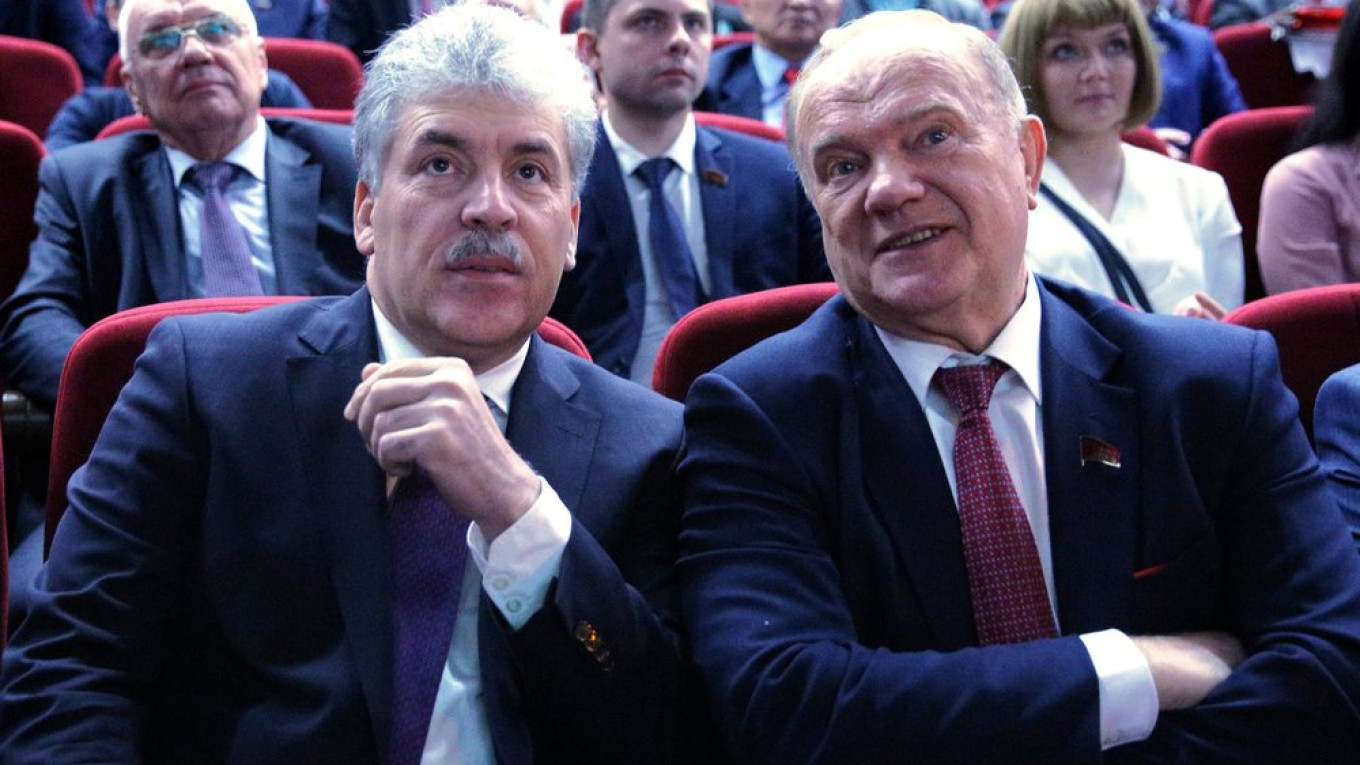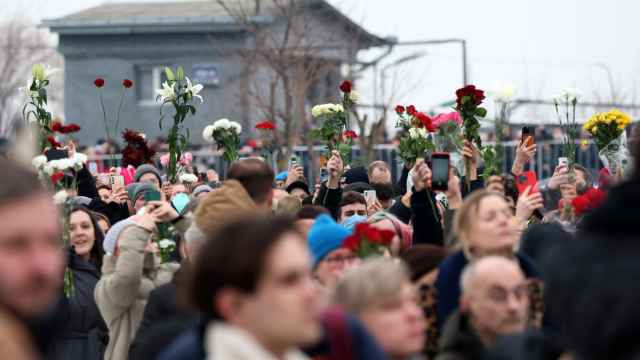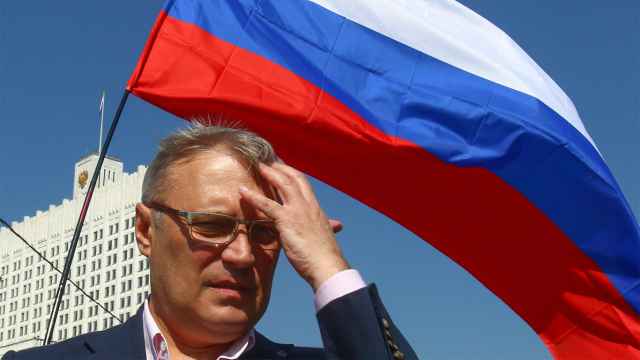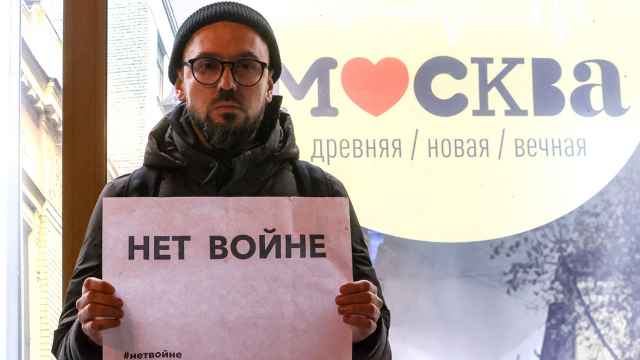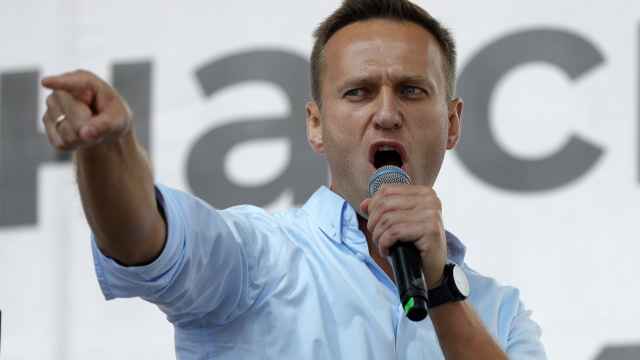The ruling party’s declining ratings and protest votes for spoiler candidates have put the in-system opposition in crisis. Instead of acknowledging its own failures, the Kremlin only sees the successes of the in-system opposition candidates, and goes on the offensive.
The Central Election Commission has refused to transfer a parliamentary seat left vacant following the death of the Nobel Prize-winning scientist Zhores Alferov to fellow Communist Party member and former presidential candidate Pavel Grudinin, claiming that he failed to disclose foreign bank accounts when running for parliament.
Legally speaking, the correct procedure would be to first file a court petition to have Grudinin excluded from the Communists’ list, and only then refuse to transfer the seat. But the authorities wasted no time in letting everyone know how displeased they are with the former presidential candidate.
Almost as soon as it was known that the Communists planned to give the seat to Grudinin, Kremlin officials hinted at problems, and weren’t afraid to get personal.
“[Communist Party leader Gennady] Zyuganov has stooped to trying to hand over a Nobel laureate’s seat to some dubious businessman,” one Kremlin source told the RBC news agency. Federal TV channels started airing Grudinin’s dirty laundry in public, reporting that his wife had asked for police protection during their divorce proceedings. The Kremlin put its hefty propaganda machine into top gear, and all to prevent what was really quite an inconsequential event: a pro-regime candidate entering the State Duma.
The Grudinin story clearly illustrates how the concept of the in-system opposition is disappearing from Russian politics.
Before the 2018 presidential election, the authorities considered Grudinin a convenient candidate who would liven up the campaign and boost turnout while posing no threat to President Vladimir Putin. And Grudinin played his part as a spoiler beautifully, barely criticizing Putin and refraining from embarking on a campaign tour around the country.
After the election, Grudinin continued to demonstrate his loyalty, declining to run for governor of the Moscow region, and performing all the rituals required of an in-system politician — but to no avail.
During the presidential campaign, the government unleashed the full force of its propaganda powers against Grudinin, then stripped him of his role as speaker of a Moscow region town municipal council. Then, when he merely tried to get a Communist Party seat in parliament, the government reacted as if he were throwing down a serious challenge to the regime.
Even though Grudinin obeyed all the rules, as far as the Kremlin is concerned, he had broken out of the system, purely because the presidential administration had to really work to ensure a good election result for Putin, and they blame Grudinin for that.
Grudinin is far from the only victim of attacks on the in-system opposition. Propaganda wars are also being waged against spoiler candidates who won gubernatorial elections last September, such as Valentin Konovalov, the Communist candidate elected as head of the republic of Khakassia (accused of draft-dodging and paying excessive bonuses to his subordinates), and Vladimir Sipyagin, the LDPR governor of the Vladimir region.
Both politicians had been approved as suitable opponents to incumbent governors, and both played by the system’s rules, making sure not to campaign too actively in the first round. Sipyagin even left the region during the second-round campaign, just to be on the safe side.
But once again, loyalty was not enough. People were prepared to vote for anyone but the all-too-familiar candidates from the ruling party. But the presidential administration blames the pro-regime politicians for the popular support that they garnered by pure chance, and is now accordingly denying them and even the parties that nominated them a place in the system.
For many years, the Communist Party, LDPR, and A Just Russia party were an important part of the Russian political system. They were completely loyal to the existing power vertical, but created an illusion of choice, and also picked up the protest vote.
It was always possible to get the in-system opposition to support important legislation, ask them to tone down their rhetoric, stay away from sensitive issues, and retract unwanted candidates.
In exchange, these parties received a more or less guaranteed share of the vote at federal and regional parliamentary elections and a chance to add their financial backers to their party lists. In recent years, each party also received one governorship and a certain number of seats in single-member districts free of opposition from the ruling party, United Russia.
But those perks came with an obligation not to nominate gubernatorial candidates without the approval of the presidential administration, to ensure they wouldn’t pose a risk to the government candidate.
To become part of the system, regional politicians had to join United Russia or the three parliamentary opposition parties, get approval to run for various elected offices, and oblige the authorities’ requests: for instance, to run as a spoiler. In exchange, they generally received guarantees of being elected to federal or regional parliaments.
The in-system opposition still abides by those rules, only now it no longer guarantees the desired result for the candidate from the ruling party. Protest votes can result in victory for spoiler candidates, even obvious ones. With the system’s boundaries no longer clear, the Kremlin faced the question of what to require of pro-regime parties.
There now appears to be just one simple criterion for excluding a candidate or party list: if they have caused any problems, they are deemed disloyal and outside of the system. This categorization is a matter of pure chance: after all, candidates and parties can win by essentially doing nothing.
The Khabarovsk region’s LDPR governor, Sergei Furgal, did not put any slogans on his posters: just his name and photo (he didn’t even specify what position he was running for in the first round), and he still won.
To preserve the old in-system boundaries, the presidential administration should admit to itself — and its main client — that the contented Putin majority is growing discontent, and will no longer automatically vote for anyone who has the support of the president. But no one will dare to admit that. Instead, they chose the simplest logic: the spoilers won because they strayed outside of the system, so they and their parties must be punished.
The Kremlin is now offering the in-system opposition a new deal: play by the old rules, but if you happen to win, you’ll be punished. This is hardly a very tempting proposition. If the opposition runs the risk of being cast outside the system, it might as well go for broke and cross the old loyalty boundaries altogether.
The Communist Party’s patience is running thin, and even the LDPR has started showing an independent streak, refusing to vote for a controversial bill aimed at creating a “sovereign Internet.”
It wouldn’t be impossible to destroy the in-system parties and create new ones from scratch, but what would stop the problem repeating itself? There are also more immediate issues: following the fates of Grudinin, Konovalov, and Sipyagin, fewer individuals will be willing to act as spoilers. Being included on the ballot now automatically generates a risk of being excluded from the system.
This article first appeared in Carnegie Moscow Center.
A Message from The Moscow Times:
Dear readers,
We are facing unprecedented challenges. Russia's Prosecutor General's Office has designated The Moscow Times as an "undesirable" organization, criminalizing our work and putting our staff at risk of prosecution. This follows our earlier unjust labeling as a "foreign agent."
These actions are direct attempts to silence independent journalism in Russia. The authorities claim our work "discredits the decisions of the Russian leadership." We see things differently: we strive to provide accurate, unbiased reporting on Russia.
We, the journalists of The Moscow Times, refuse to be silenced. But to continue our work, we need your help.
Your support, no matter how small, makes a world of difference. If you can, please support us monthly starting from just $2. It's quick to set up, and every contribution makes a significant impact.
By supporting The Moscow Times, you're defending open, independent journalism in the face of repression. Thank you for standing with us.
Remind me later.



